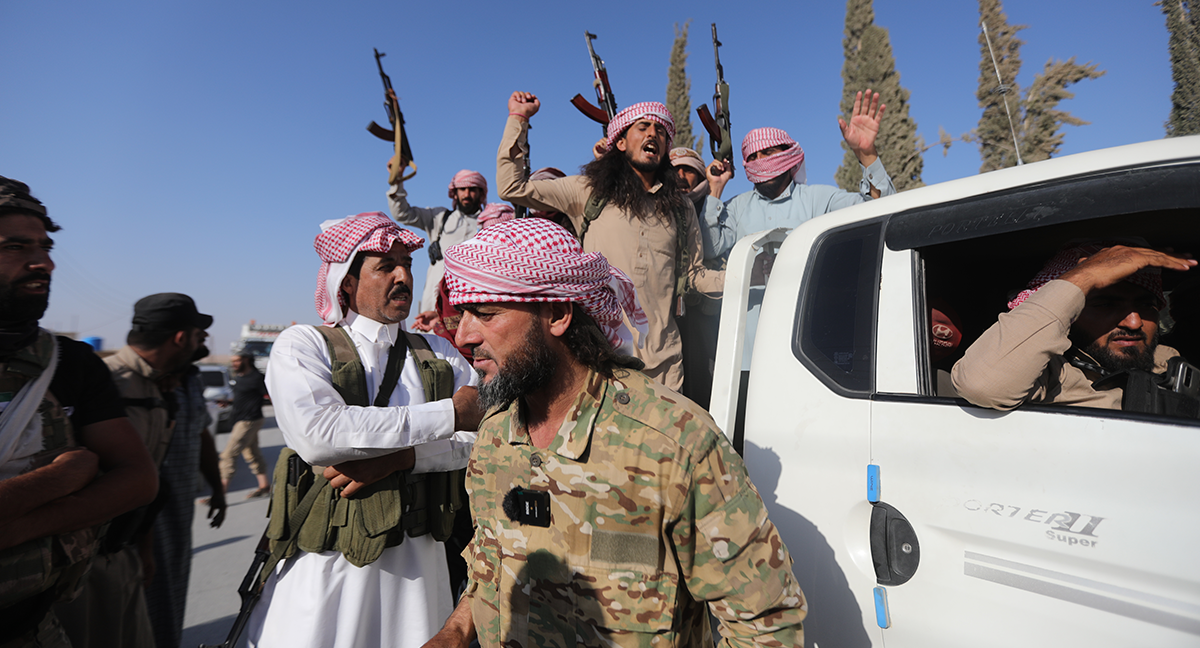
A Syrian military source denied reports that the army and allied tribal fighters are preparing an imminent assault on SDF-held Deir ez-Zor and Raqqa, saying recent mobilization talk reflects ad hoc “tribal musters” lacking unified goals. He said several groups have already pulled back and that a Friday meeting of the Arab Tribes Council ended without consensus on launching operations against the SDF.
The British outlet The National recently reported Damascus had drawn up a plan for a broad offensive by October, massing roughly 50,000 fighters near Palmyra with support from local Arab tribes. The Syrian source countered that such an operation lacks a U.S.–led coalition green light, calling the SDF a reliable Washington partner, and warned Damascus also fears potential direct Israeli intervention after an Israeli strike on Damascus last month reportedly foiled a government move on Sweida.
Rumors of new fronts in the northeast have grown alongside sightings of troop movements in the Syrian steppe, but analysts note tribes would be pivotal in any confrontation—and remain divided. Arab fighters make up more than half of SDF ranks, a dynamic some observers dub a possible “Trojan horse” if clashes erupt among Damascus-aligned tribes, anti-SDF factions, and the SDF itself.
Hard-line statements from some tribal figures have intensified. In Tal Abyad on Thursday, notables from the Mashhour clan of the al-Baggara tribe vowed to fight the SDF and urged Arab fighters serving under it to defect “or become legitimate targets.” Al-Baggara—spread across Deir ez-Zor, Hasakah, Raqqa and into Aleppo—counts dozens of sub-clans and a large population inside and outside Syria.
The SDF and its political wing, the Syrian Democratic Council, have moved to court tribal leaders to avoid being drawn into a wider war. Mahmoud al-Meslet, SDC co-chair and a sheikh of the Jabbour tribe, appealed for dialogue, saying Syria is in a “dangerous, sensitive phase” and that tribes should not be “fuel” for outside agendas. He urged de-escalation and patience with negotiations, framing national unity and stability as shared goals.
Turkey’s stance adds pressure. Pro-Ankara Syrian National Army units have stepped up harassment of SDF positions in eastern Aleppo countryside, amid a flurry of diplomacy: Turkish Foreign Minister Hakan Fidan’s recent visit to Damascus and a Syrian delegation’s trip to Ankara. Both capitals have struck a more threatening tone toward the SDF; Fidan accused it of recruiting foreign fighters and maintaining high military readiness despite talks.
